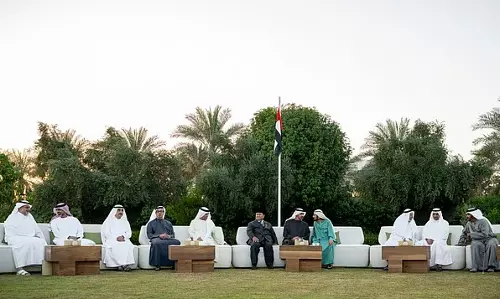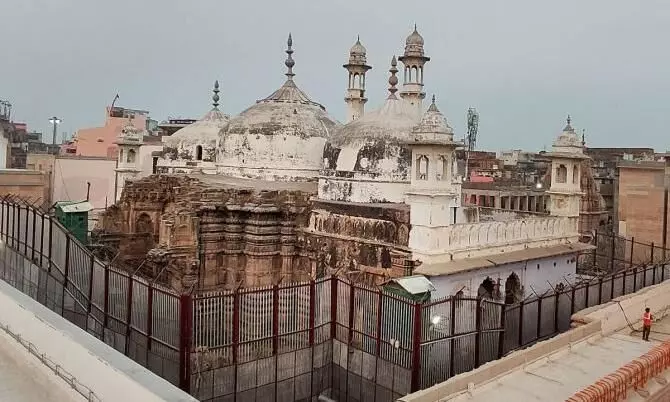
Pleas challenging Places of Worship Act: Gyanwapi Mosque moves SC
text_fieldsNew Delhi: The Gyanvapi Mosque in Varanasi approached the Supreme Court with an intervention application against petitions that challenge the constitutional validity of the Places of Worship Act, 1991. The mosque committee argued in its application that allowing challenges to the act would have drastic consequences, The Indian Express reported.
The mosque committee cited the violence in Sambhal, Uttar Pradesh, where a local court permitted the survey of the Shahi Jama Masjid there. The incident led to widespread violence and has claimed at least six people’s lives, the committee said and argued that the declaration sought by the petitioner in the matter would give rise to similar disputes across the country, obliterating the rule of law and communal harmony.
The committee reminded us that a number of claims were made regarding various mosques and Dargahs, claiming them to be ancient temples. It argued that these claims were rhetorical and communal, while the “purported grievance of the petitioner, as regards ancient rulers of the past, cannot be addressed” by the Supreme Court, and it is not “ a valid ground for challenging the constitutional validity of the 1991 Act.”
According to the committee’s petition before the top court, “An Article 32 petition challenging a legislative enactment must indicate the unconstitutionality of the provisions based on constitutional principles and the rhetoric arguments seeking a sort of retribution against the perceived acts of previous rulers cannot be made the basis for a constitutional challenge,” The Indian Express quoted.
Further, the committee cited the Ayodhya verdict of the top court, saying that the five-judge bench unequivocally held that it could not entertain claims that stem from actions of the Mughal rulers against Hindu places of worship in a court of law.
The law is not the answer for solace or recourse against the actions of ancient rulers, SC had ruled.
“This Hon’ble Court went on to note that our history is replete with actions that have been judged to be morally incorrect and even today are liable to trigger vociferous ideological debate,” the mosque committee quoted the court ruling.
According to the committee plea, the top court also held then that the adoption of the Constitution marks a watershed moment where We, the People of India, departed from the determination of rights and liabilities on the basis of our ideology, our religion, the colour of our skin, or the century when our ancestors arrived at these lands, and submitted to the rule of law.
The committee pointed out that the 1991 act protects and secures the fundamental values of the Constitution. The Preamble emphasises the need to protect the liberty of thought, expression, belief, faith and worship, human dignity and fraternity.
The committee’s petition said that the state enforced a constitutional commitment and operationalised its constitutional obligations to uphold the equality of all religions and secularism- a basic feature of the Constitution, by enacting the Places of Worship Act.























